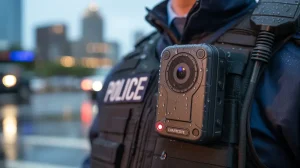Blood testing is often viewed as the most dependable way to measure alcohol concentration in a North Carolina DWI case. The science behind BAC tests is powerful, but it is also technical, layered with protocols, human decision points, and laboratory processes that must be followed with precision. When a “drunk driving” case shifts from the roadside to the laboratory, the entire conversation changes. You move from dexterity exercises to molecular chemistry, and from visible performance to physics, gas chromatography and mass spectroscopy, both topics that an average juror would never see unless brought to life at trial by defense counsel.
behind BAC tests is powerful, but it is also technical, layered with protocols, human decision points, and laboratory processes that must be followed with precision. When a “drunk driving” case shifts from the roadside to the laboratory, the entire conversation changes. You move from dexterity exercises to molecular chemistry, and from visible performance to physics, gas chromatography and mass spectroscopy, both topics that an average juror would never see unless brought to life at trial by defense counsel.
DWI defense lawyer Bill Powers has spent more than thirty years watching how blood testing evidence develops in courtrooms across Mecklenburg County and throughout North Carolina. During that time, he has cross examined toxicologists, reviewed extensive laboratory documentation, and taught officers and lawyers about breath and blood science, standardized field sobriety tests, and trial strategies and protocols. His experience includes the practical knowledge of how jurors interpret toxicology evidence and how those interpretations can shift once they hear how the underlying science actually works.
If you are dealing with a DWI charge that involves blood testing, or if you are a lawyer looking to sharpen your trial approach to forensic toxicology, please contact the DWI defense lawyers at Powers Law Firm in Charlotte. Call or TEXT 704-342-4357 to discuss how careful preparation and scientific clarity can shape the outcome of a case.
 Carolina Criminal Defense & DUI Lawyer Updates
Carolina Criminal Defense & DUI Lawyer Updates prosecution and defense of DWI cases in North Carolina. The first installment examined the limits of chemical testing. The second article turned to the machines that interpret alcohol breath samples into evidence, using the “breathalyzer.” This post focuses on the field sobriety tests or “SFSTs” that often precede BAC testing.
prosecution and defense of DWI cases in North Carolina. The first installment examined the limits of chemical testing. The second article turned to the machines that interpret alcohol breath samples into evidence, using the “breathalyzer.” This post focuses on the field sobriety tests or “SFSTs” that often precede BAC testing.
 government trust against the structural necessity of constitutional discipline. Whether this evolution strengthens justice or weakens liberty depends on how future courts interpret the limits of “reasonableness” in applying the Good Faith Exception to the Exclusionary Rule.
government trust against the structural necessity of constitutional discipline. Whether this evolution strengthens justice or weakens liberty depends on how future courts interpret the limits of “reasonableness” in applying the Good Faith Exception to the Exclusionary Rule. enforcement in North Carolina.
enforcement in North Carolina. law in decades. The opinion not only interprets N.C.G.S. § 15A-974 but also redefines how North Carolina courts understand the relationship between the Fourth Amendment and Article I, Section 20 of the North Carolina State Constitution.
law in decades. The opinion not only interprets N.C.G.S. § 15A-974 but also redefines how North Carolina courts understand the relationship between the Fourth Amendment and Article I, Section 20 of the North Carolina State Constitution. criminal defense and DUI defense lawyers.
criminal defense and DUI defense lawyers.
 Few areas highlight that collision more than impaired driving prosecutions involving fatalities and serious injuries.
Few areas highlight that collision more than impaired driving prosecutions involving fatalities and serious injuries. second-degree murder charges.
second-degree murder charges.